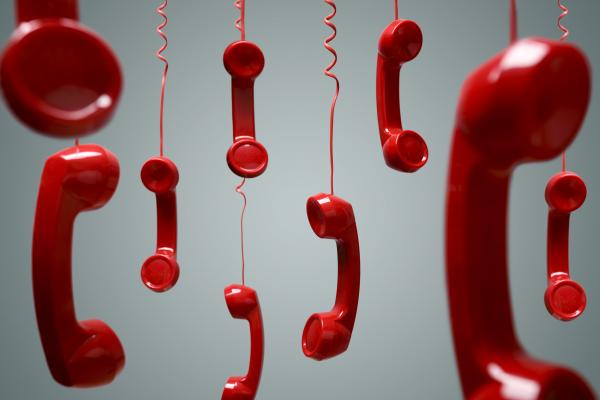LAST MONTH we surrendered. We finally cancelled service on our home landline.
Despite the growing expense of traditional home phone service, we’d kept it this long for the same reasons that many people in rural America must. For one thing, cell phone connectivity was very weak at our house. To make a voice call you had to stand next to an upstairs window. And cell phone service goes away entirely when the electric power goes out at the tower. Where we live, the telephone lines are underground and unaffected by weather, which comes in handy when, in the dead of winter, an ice storm knocks out the power and you need to order a propane delivery.
So we kept our landline service, even when the quality deteriorated and dropped calls became a regular annoyance. Finally, a few months ago, they put up another cell tower somewhere near us that somewhat improved the connection, so we pulled the plug.
This isn’t just one rural family’s story. The 19 million Americans (14.5 million of us rural) who depend on landline service because of no or limited broadband access have for several years been the targets of a concerted campaign by Big Telecom to shed its landline phone business. The companies hope to use the transition to a wireless and digital future to wriggle their way out from under 80 years of regulatory history mandating universal service. Toward this end, they have worked through state legislatures, petitioned the Federal Communications Commission and even, according to consumer groups’ complaints to the FCC, simply refused to maintain and repair the existing landline network, all with the goal of eliminating their legal obligation to connect even the poorest and remotest American households.
In our case, the villain is AT&T; in some places, it’s Verizon or CenturyLink. These companies, along with cell phone giant T-Mobile, are all corporate members of the Communications and Technology Task Force of the American Legislative Exchange Council (ALEC).
Maybe you’ve heard of ALEC. It’s the right-wing network that brings together state legislators and corporate executives to write model bills that get introduced all over the country. ALEC first came to wide public attention when investigative journalists discovered that Arizona’s draconian anti-immigrant statute had been drafted by an ALEC working group that included a representative of the Corrections Corporation of America, a private prison firm that has reaped a bonanza from the internment of undocumented people in the U.S.
THREE YEARS ago, ALEC’s telecom task force began pushing a bill that would allow phone companies to stop offering landline service anywhere that an alternative could be made available, while simultaneously dropping any regulations on the quality or cost of that “alternative” service. The model bill has been introduced in more than 30 states around the country since 2013, and it is currently under consideration by the state legislature in California.
In my home state of Kentucky, the bill was passed and signed into law last year despite the fact that its primary sponsor, Sen. Paul Hornback, admitted that the bill had been written by AT&T. “You work with the authorities in any industry to figure out what they need to move that industry forward,” Hornback told the Lexington Herald-Leader. “It’s no conflict.”
The bottom line here is that we need a national telecom policy that treats access to communication and information as a basic human right. If we took that right seriously, we would be undertaking a massive public infrastructure project to bring high-speed fiber internet connections to every ’hood and hollow in the United States. Instead the digitally disenfranchised must fight to keep the pitifully inadequate and antiquated connection of a telephone landline.

Got something to say about what you're reading? We value your feedback!

